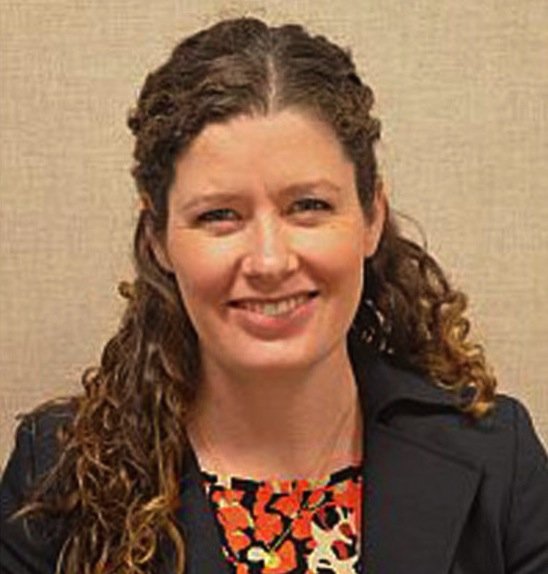PURA Chair Katie Dykes Named DEEP Commissioner

Audio By Carbonatix

Katie Dykes. Courtesy photo
West Hartford resident Katie Dykes will succeed Robert Klee as DEEP commissioner.
By Jan Ellen Spiegel, CTMirror.org
In naming Katie Dykes as commissioner of the Department of Energy and Environmental Protection, Gov.-elect Ned Lamont has chosen a person who is well known at DEEP.
Since late 2016, Dykes has been chair of the Public Utilities Regulatory Authority, which operates under DEEP’s umbrella. Prior to that, beginning in March 2012, she served as Deputy Commissioner for Energy at DEEP.
Her background skews very much to DEEP’s energy mission – one of the department’s three. The others are environmental quality and environmental conservation, the core areas from the former Department of Environmental Protection from which outgoing Gov. Dannel Malloy created DEEP when he first came to office in 2011.
Environmental advocates had worried then that the new energy mission of the department would overshadow its longstanding environmental focuses.
So far reaction to Dykes’s appointment – which is a genuine surprise – has been positive from people who have worked with her already.
“That’s a fantastic choice,” said Rep. Jonathan Steinberg, D-Westport. He has been a member of the Energy and Technology Committee and is widely thought to be the leading contender as House co-chair. “She’s the brightest most experienced on energy you could possibly have. I have a lot of faith in her. She’s whip-smart.”
Rep. Lonnie Reed, D-Branford, the outgoing chair of the committee who worked with Dykes on policy for several years, said Dykes, having grown up in the coal producing state of West Virginia, had a wide perspective on energy issues, understands that energy and environment are intertwined and sees the need to get to zero carbon.
“She brings all those layers to the job and really understands how one aspect impacts the other,” said Reed, who indicated she did not think Dykes’s energy background would be at the expense of other environmental issues. “I only give her the highest praise. She’s really one of the smartest people I’ve every worked with.”
David Sutherland, legislative advocate for The Nature Conservancy said that even without the specific environmental experience, Dykes would be able to have experienced deputy commissioners to handle those areas – even if she retains those there now. “I think Katie obviously brings a wealth of energy experience,” he said. “The first order for any incoming commissioner is dealing with the budget crisis – how most effectively to work with a variety of people to advocate for adequate funding and for not reducing the ranks any further.”
In a statement, Leah Lopez Schmalz, chief program officer for Connecticut Fund for the Environment /Save the Sound noted Dykes’s extensive experience with the state’s complex energy landscape that will be invaluable in meeting the state’s greenhouse gas reduction goals.
“We look forward to working closely with her to achieve those goals, and the many other equally important responsibilities of her new position, including safeguarding public drinking water, stewarding Connecticut’s public lands, staying the course on cleanup of Long Island Sound’s waters and the rivers that flow through our backyards, and holding accountable anyone who threatens these fragile resources with pollution or degradation,” Schmalz said.
Eric Hammerling, executive director of the Connecticut Forest and Parks Association, who has not worked directly with Dykes, said the next four years are going to be a challenge for any DEEP commissioner as the agency is poised to lose 40 percent of staff to retirement and other reductions.
“I would just say she’s very smart and well qualified,” he said. “I really hope in addition to the energy agenda she also continues the commitment DEEP has had for many years for parks and trails and outdoor recreation – those things that make Connecticut great.”
In his announcement statement, Lamont said “Katie Dykes has long played an active role in bringing cheaper, cleaner, and more reliable energy to Connecticut’s families and businesses. She has thought carefully about how our state can address climate change and protect the environment, and I welcome her into my administration as we work to bring energy costs down and create new jobs in the green economy.”
In her statement Dykes said: “I applaud the steps Connecticut has already taken to transition to a sustainable energy future and counter the adverse effects of climate change.”
Dykes had been an integral part in many of those changes – negotiating difficult legislation and arcane energy concepts that often confounded legislators. She had come in for criticism at times for advocating energy policies that put more emphasis on electric rates and what many environmental advocates felt was not enough emphasis on longer-term climate change concerns. And she was sometimes criticized for moving too cautiously on new clean and renewable energy projects and concepts such as shared solar, which allows those who cannot put solar on their own roofs to benefit from it anyway. But she did play a major role in ramping up the state’s commitment to clean and renewable energy and its early deployment.
“I hope moving forward she will take a proactive and productive approach, but take into consideration Lamont’s agenda,” said Amy McLean Salls, Connecticut director of Acadia Center. “We know she is very familiar with all of the issues we have in front of us in Connecticut – energy, greenhouse gas emissions and economy, she seems to be someone who could take them on and hit the ground running.”
Craig Hallstrom, president of regional electric operations at Eversource, one of the state’s two utilities, both of which have dealt with Dykes as deputy commissioner and in her regulatory role at PURA, said in a statement: “We know she will bring her expertise, energy and thoughtfulness to this important role as she has in every other.”
Tony Marone, president and CEO of United Illuminating, Southern Connecticut Gas and Connecticut Natural Gas in a statement called Dykes “well suited to the job, bringing a wealth of knowledge and a deep understanding of national, regional and local energy issues.”
In that regional capacity, Dykes also served for three years as chair of the Regional Greenhouse Gas Initiative, the nation’s only multi-state cap and investment program covering power plants. During that time she was instrumental in negotiating new lower caps on emissions for all the member states. Her husband, Mackey Dykes, is an executive at the Connecticut Green Bank.
Dykes replaces Rob Klee, who came to DEEP in 2011 as chief of staff to the Department’s first commissioner, Dan Esty. Klee became commissioner when Esty left in 2014. He plans to return to Yale’s School of Forestry and Environmental Studies where he will be a visiting fellow this spring.
With Dykes leaving PURA, Lamont will have two of its three commissioner positions to fill. Vice Chairman Jack Betkoski’s term is up in 2019.
Reprinted with permission of The Connecticut Mirror. The author can be reached at [email protected].
Like what you see here? Click here to subscribe to We-Ha’s newsletter so you’ll always be in the know about what’s happening in West Hartford!



